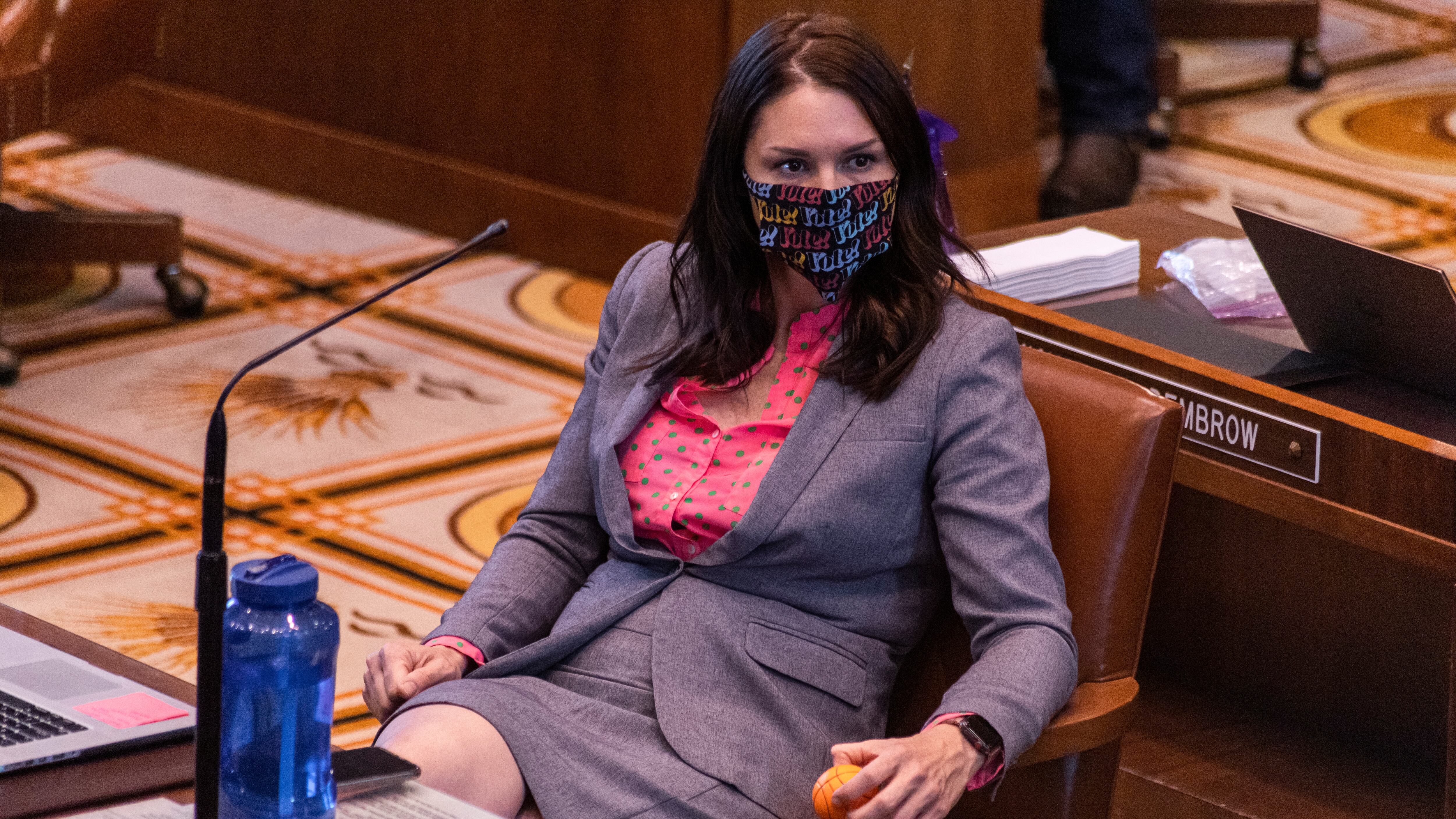State Sen. Shemia Fagan (D-East Portland) is on track to spend more than $3 million in Oregon's race for an open secretary of state seat.
As of Nov. 2, Fagan had reported raising $2.96 million this year. Election rules allow a seven-day reporting lag, so she should easily cross the $3 million mark soon.
That's about three times the total her GOP opponent, state Sen. Kim Thatcher (R-Salem), has raised, according to state filings.
There are a number of reasons Democrats are pouring money into Fagan's campaign. The most obvious is recent history.
Oregon Democrats learned a hard lesson in 2016: A hefty voter registration advantage over Republicans does not guarantee victory in statewide elections.
Even though Democrats enjoyed a registration advantage of nearly 7 percentage points over Republicans, former state Rep. Dennis Richardson (R-Central Point) beat Democratic, then-Labor Commissioner Brad Avakian that year 47% to 43%.
In addition to the Democrats' voter registration advantage, Avakian outspent Richardson $2.55 million to $1.72 million. (Richardson died in office of brain cancer in 2019. Gov. Kate Brown appointed former state Sen. Bev Clarno (R-John Day) to replace Richardson on the condition Clarno not stand for election.)
This is a also a particularly important year for a secretary of state's race because it coincides with the federal census, which happens just once per decade. In 2021, the Legislature will take the results of the federal count and redraw legislative boundaries. Their skill in redrawing those district lines in 2011—when the Oregon House was equally split between Democrats and Republicans 30-30—helped pave the way for the supermajorities Democrats enjoy in both legislative chambers today.
In some states, independent panels redraw legislative districts. But in Oregon, the process calls for the secretary of state to backstop the Legislature. If lawmakers cannot agree, whoever holds that office steps in to draw the lines. That is a powerful incentive for both parties—and a reason the National Democratic Redistricting Committee has contributed $140,000 to Fagan's campaign.
As in the May primary, when she eked out a narrow victory over her moderate colleague, state Sen. Mark Hass (D-Beaverton), Fagan is attracting her strongest support from organized labor. Service Employees International Union Local 503, the state's biggest public employee union, has contributed nearly $440,000 to her this year, and numerous other unions and their national affiliates have written big checks.
Thatcher, by contrast, has failed to attract any national money or get much support from the Oregon GOP's traditional stable of large individual donors or timber companies. She's gotten $200,000—20% of the money she's raised—from Francis E Fowler IV, an Eagle Point man who previously has not contributed to Oregon races. Oregon Public Broadcasting, which first reported Fowler's role, identified him as an heir to a liquor fortune. Other big contributors to Thatcher include her family and businesses (about $60,000, including loans) and $44,000 from the Timber Unity PAC. Thatcher has raised $1.05 million so far.
Despite her party's registration edge and fundraising dominance, Fagan has been pleading for cash in daily emails to donors and has hit up many fellow elected officials who don't face competitive races—even Senate President Peter Courtney (D-Salem), whom Fagan alone voted against in leadership elections last year, coughed up $5,000.
Related: Shemia Fagan Explains Why She Voted Against Peter Courtney Remaining Senate President.
Whoever wins the race will be next in line to become governor, should Gov. Kate Brown leave office early, and could be in line to run for governor in 2022, when Brown will be term-limited from seeking reelection.
WW has endorsed Fagan in the secretary of state's race.
Ballots for Tuesday night's election must be delivered to an official drop site by 8 pm Nov. 3 in order to be counted.
